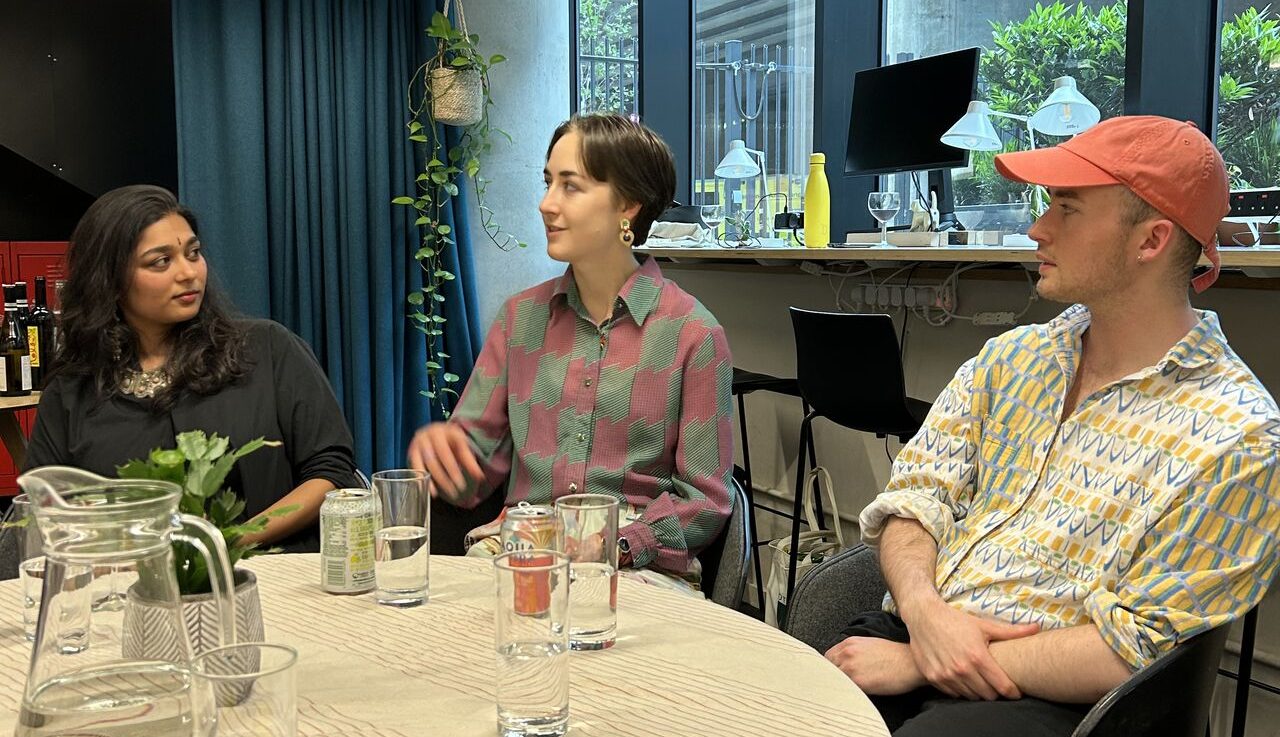We recently celebrated The London Festival of Architecture with Alternative Practice – our community of students and young workers looking to challenge the boundaries of traditional build environment practice. We presented a panel discussion to re-imagine transport and what that means for young people, paying particular attention to how transport infrastructure can support and block access to culture, community and the night-time economy. We were joined by Celine Lessard from London Borough of Lambeth, Himali Patil from The Community Brain CIC and Ezra Johnson from Transport for All.
The theme for this year’s London Festival of Architecture is ‘re-imagine,’ – a concept which is already at the heart of Alternative Practice. Our goal has always been to create a space to re-imagine different ways to practise and participate in the built environment and do so hopefully and positively.
There were fascinating insights on accessibility, the night time economy, the fluid life of the renter, connections of community and place, and how we should all strap blocks of ice to our feet and go skiing down a roll of lino with Himali Patil and friends in Surbiton in October. Engagement came up time and again – specifically early and meaningful engagement – to make transport work for all. We spoke about the tensions between some sustainability interventions (e.g. EV charging points, street planting) and accessibility needs, but how these can be harmonised with proper engagement. We looked at issues of safety and perceptions of safety and the challenge of engaging with people who aren’t using transport. Celine Lessard spoke about the excellent work underway in developing the Lambeth night time strategy and the diverse communities whose experience of Vauxhall can be enhanced through safer walking routes and engagement with night time venues. Ezra Johnson from Transport for All reminded us that the most critical piece of transport infrastructure is a well-constructed pavement and that many people’s access to services and amenities on their doorstep can be taken away from them if this basic requirement isn’t met.
